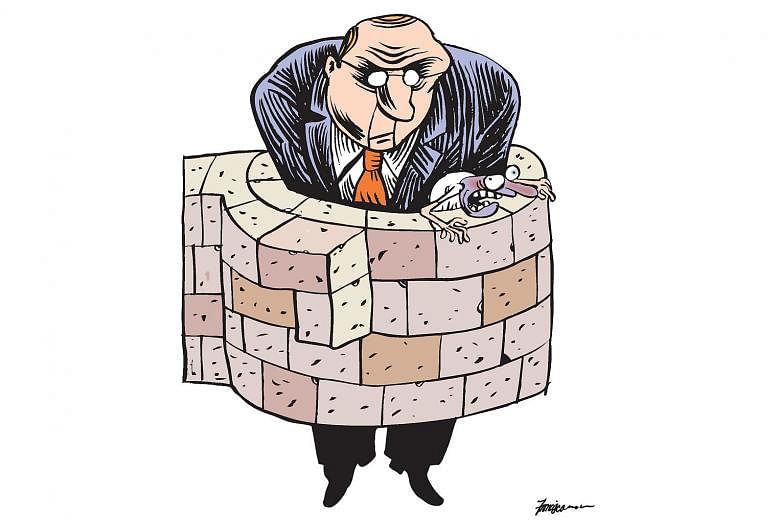LONDON • Investing in Russia has always been a risky case of "famine or feast" for those brave enough to try. And at no time is this truer than now, for Moscow's stock market is in a tailspin. It lost almost 9 per cent in one day last week, while the rouble - the country's currency - was marked down by over 10 per cent.
Russia's politically connected billionaires, its famed oligarchs, are also hurting badly. Mr Oleg Deripaska, the raw materials magnate and Moscow insider who only a few months ago was feted by all the world's influential people at Davos, where he threw a lavish reception with pop singer Enrique Iglesias, saw the value of his companies drop by a quarter; he and his colleagues are estimated to have lost US$16 billion (S$21 billion) last week alone.
Already a subscriber? Log in
Read the full story and more at $9.90/month
Get exclusive reports and insights with more than 500 subscriber-only articles every month
ST One Digital
$9.90/month
No contract
ST app access on 1 mobile device
Unlock these benefits
All subscriber-only content on ST app and straitstimes.com
Easy access any time via ST app on 1 mobile device
E-paper with 2-week archive so you won't miss out on content that matters to you


